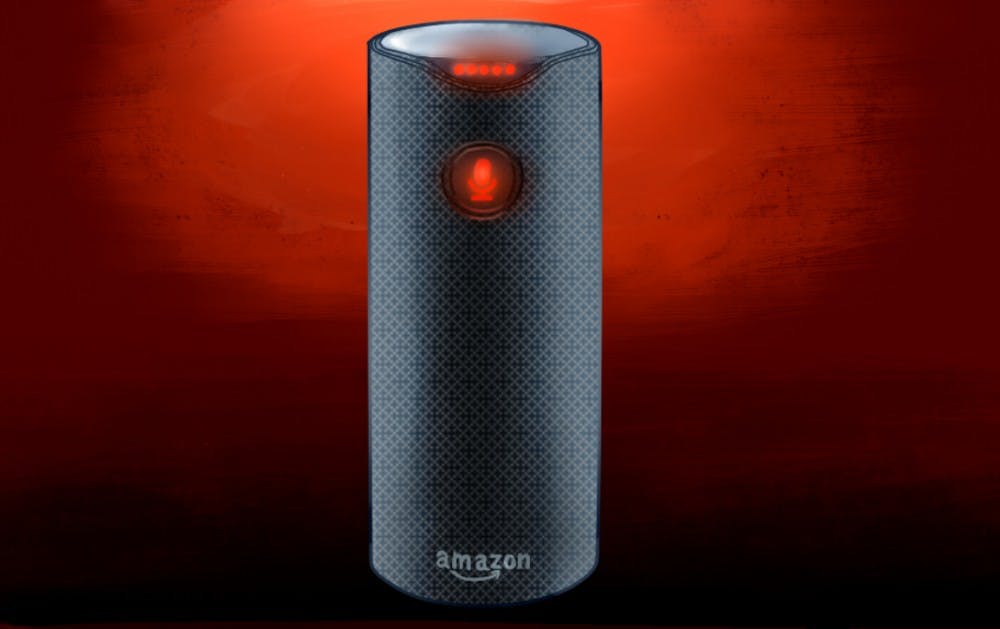"Alexa, play Despacito!"
ASU research proves that artificial intelligence and machine learning devices can be used for more than simply playing music in students' dorms.
In the 21st century, people have seen new technology come out that resembles technology romanticized in science fiction films such as "Back to the Future" or "Her," and one type of tech that is becoming increasingly implemented into daily life is machine learning and artificial intelligence.
These devices are not lacking on ASU campuses.
Sethuraman Panchanathan, chief research and innovation officer for the school for the future of innovation in society, as well as a member of the National Science Board, said that machine learning used in the new "Smart" Stadium, a smart-home-esque ASU stadium revamp completed this summer, can be used to reduce wait times for certain services within ASU sporting events through a smartphone app.
Panchanathan said the app has the ability to inform attendees of the best times to use food distribution services or to go use the restroom. This feature is something that ASU students will be able to encounter in future football games in the Sun Devil Stadium.
"When the lines (at vending stations) are exceedingly long and you're a fan sitting in the stadium wanting to go and pick up food, you (can) use computers and machine learning," Panchanathan said.
Some research and initiatives at ASU are done to provide students with new learning experiences through new technologies, such as Internet-of-things and AI, in order to design entrepreneurial pitches at Venture Devils.
Venture Devils is a 'Shark Tank'-like ASU program where students can pitch business ideas and obtain funding in order to use advancing tech at ASU, according to the group's website. Students are able to solve problems that society and the consumer would adopt through this program.
However, while AI technology is rapidly advancing; legal infrastructure to try to define the boundaries and limits as to how these new technologies will behave are lagging behind.
Lydia Manikonda, a doctoral candidate at the school for computing, informatics and decision systems engineering, said she was skeptical on whether the current legal and ethical infrastructure will be adequate to handle AI in the next five years.
"I don't think we have that infrastructure at this point in time," Manikonda said, "In fact, it slowly came to life, and research communities are slowly working on these particular aspects and looking on these ethical issues ... privacy issues and legal aspects of these particular things. So, I think ... (five years) is very short, but we are currently not ready."
Manikonda said that the rapid development of machine learning and its rapid adoption in home devices tends to evoke fear and excitement in some users.
"(AI is) scary, but at the same time exciting, because at one hand we are getting better technology, but on the other hand, (people wonder) 'Where is my data and how are companies using it?'" Manikonda said.
In a survey conducted by Manikonda and two other researchers, 68.63 percent of students who received Echo Dots while living at ASU's Tooker House expressed that they had privacy concerns regarding the daily use of Echo Dots.
100 percent of participants stated one or more privacy concern, according to the survey's results.
Manikonda and Dr. John Rome, the deputy chief information officer at ASU, both confirmed that these privacy concerns are being factored into the way they do research.
For example, programs such as the Tooker House Echo Dot initiative are an opt-in rather than opt-out.
"We went with eyes wide open that people will have security concerns and because of that it was an opt-in program," Rome said.
Despite security concerns, ASU researchers believe that AI and machine learning is ultimately beneficial to students.
"In the future, where you'll see it more and more is around learning and learning outcomes," Rome said. "We know that students learn differently and we know that machine learning and AI is the perfect marriage with trying to understand how the students learn."
Correction: a previous version of this article identified the smart stadium as Wells Fargo Stadium instead of Sun Devil Stadium, the article has been updated to reflect this change.
Reach the reporter at adimarog@asu.edu or follow @AndrewDimaro on Twitter.
Like The State Press on Facebook and follow @statepress on Twitter.




